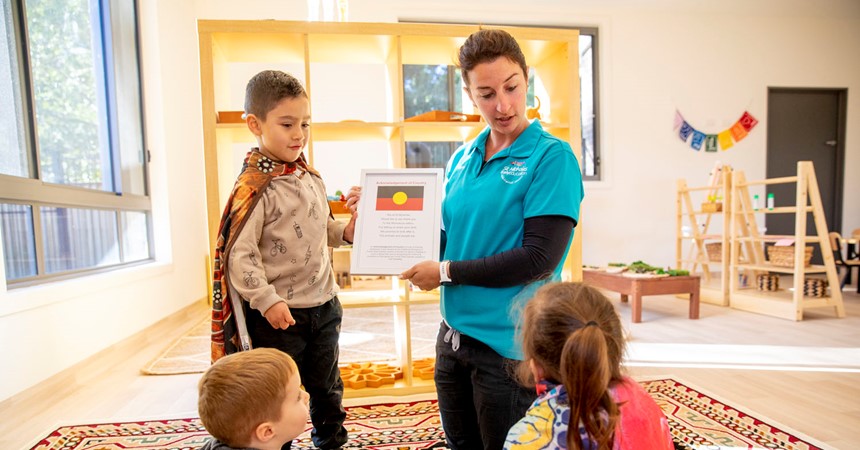Kelly Pavan, a Psychologist with CatholicCare Social Services Hunter- Manning, says there are many benefits to celebrating cultural diversity, including; helping to overcome stereotypes, building cultural awareness, discouraging racism, and encouraging unity.
So how can we, as individuals, support a societal shift from an (mostly) acceptance of differences to a widespread celebration of diversity? Conversations with our children are an excellent place to start.
"It's vitally important that we're supporting our children to respect and accept differences,” Ms Pavan said. “Otherwise, the risk will be that they become adults who contribute to problems brought about by racism and discrimination."
Ms Pavan said it was common for people to be concerned about getting “it wrong” when it came to discussing differences within cultures or any type of diversity including age, gender, physical ability and socioeconomic status.
"This fear can prevent people from having important conversations,” she said. “However, to build our awareness and acceptance, it is important to muster the courage to respectfully share our knowledge and be open to others' perspectives."
It is not uncommon to have been in a public space, such as a supermarket line-up, and have a child blurt out what is a seemingly inappropriate question about someone's appearance. Ms Pavan says that when a child points out that a person is different, they are merely making an observation, but it is our response that can make a difference.
"Children are naturally curious,” Ms Pavan said. “Observing the characteristics of others helps them to formulate their sense of self by defining what makes them different. It's up to us as adults to use these experiences as an opportunity to send accurate messages about each culture so that children learn that differences make a person unique, not inferior.
"Having a discussion with the child about their observation is important. A good guide to follow is to acknowledge the child's observation is valid, explain the reason behind their observation and respond in a way that promotes awareness and insight."
The responsibility of fostering cultural awareness should not rest solely with parents. We all have a role to play. Cultural diversity in early education can provide a range of opportunities for children and families to celebrate differences, with guidance from educators.
Kerri Armstrong, General Operations Manager of St Nicholas Early Education, says quality early childhood education is guided by the Early Years Learning Framework, which promotes respect for diversity.
"Our educators are very mindful of the need to embed respect for diversity in our children,” Ms Armstrong said. “We're passionate about enabling children to celebrate their differences and actively foster their sense of curiosity by encouraging open conversations."
St Nicholas Early Education services include an array of resources that promote diversity, including literature.
"Children's books can be a great way to promote a child's learning of other cultures, particularly through storytelling that includes diverse characters," Ms Armstrong said.
"Including multicultural literature in our centres has enabled our students to gain a better understanding of both their own culture and other cultures. It has also helped to bridge perceived gaps between children from diverse cultural backgrounds and strengthened their relationships with peers."
Next month, St Nicholas Educators will attend a symposium that includes a presentation and workshop from Speaking in Colour. The presentation will support their understanding of Aboriginal and Torres Strait Islander cultural sensitivities and barriers, as well as providing fresh insights on how to implement strategies that promote and encourage cultural diversity among educators, children and their families.
"Being respectful of Australia's heritage is part of who we are and what we do at St Nicholas,” Ms Armstrong said. “We are committed to providing an environment that authentically represents diverse cultural learning opportunities, every single day.
"It's an honour for us to educate the children in our service and we actively share important values such as respect and inclusion with them, as we guide their learning journey and self-identity."
Promoting diversity and understanding is not only a powerful tool to combat racism but also a fantastic source of opportunity and inspiration. In this time of global unrest, it has never been more important for all of us to seek out opportunities for respectful conversations that increase our cultural awareness and share this knowledge with others, particularly children.




























































































